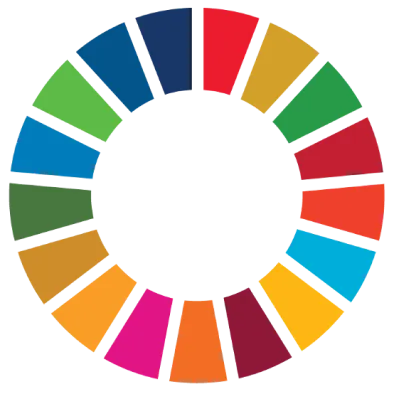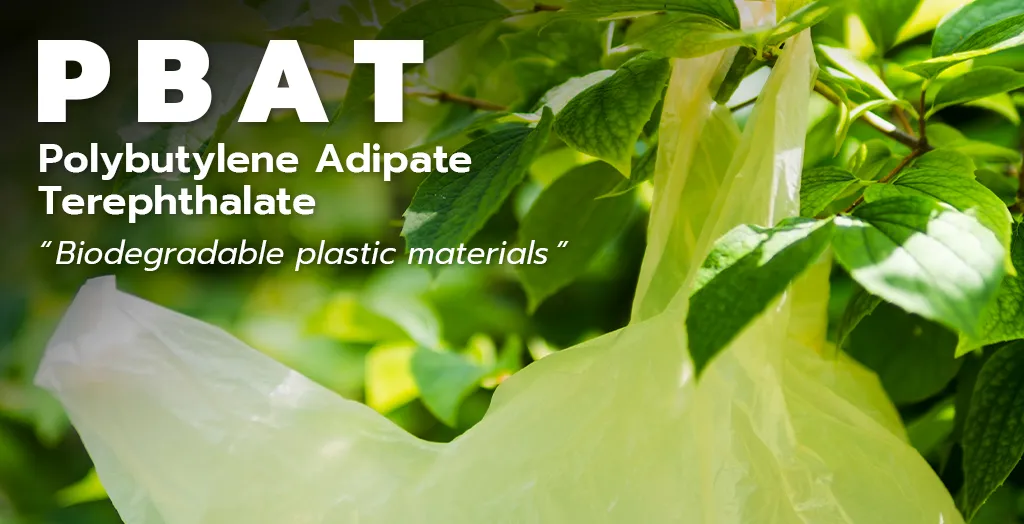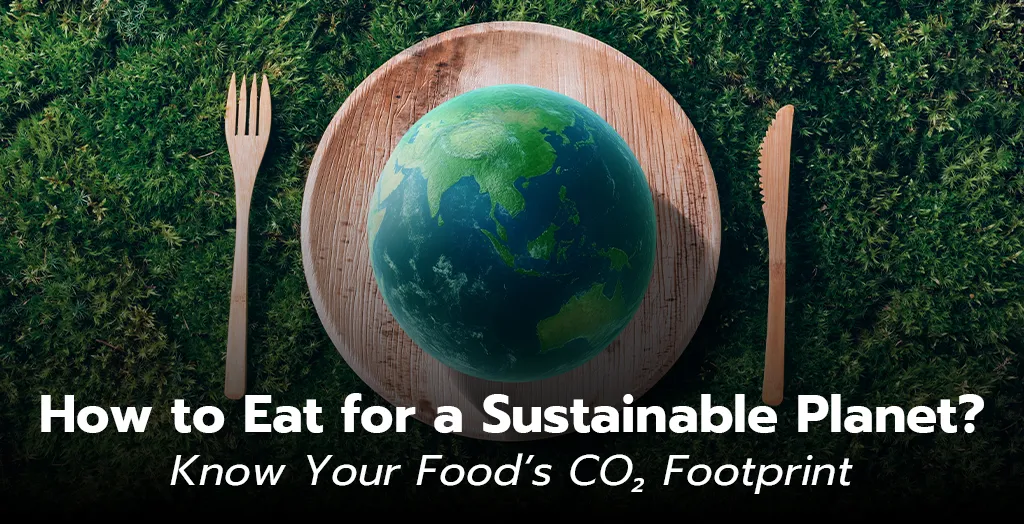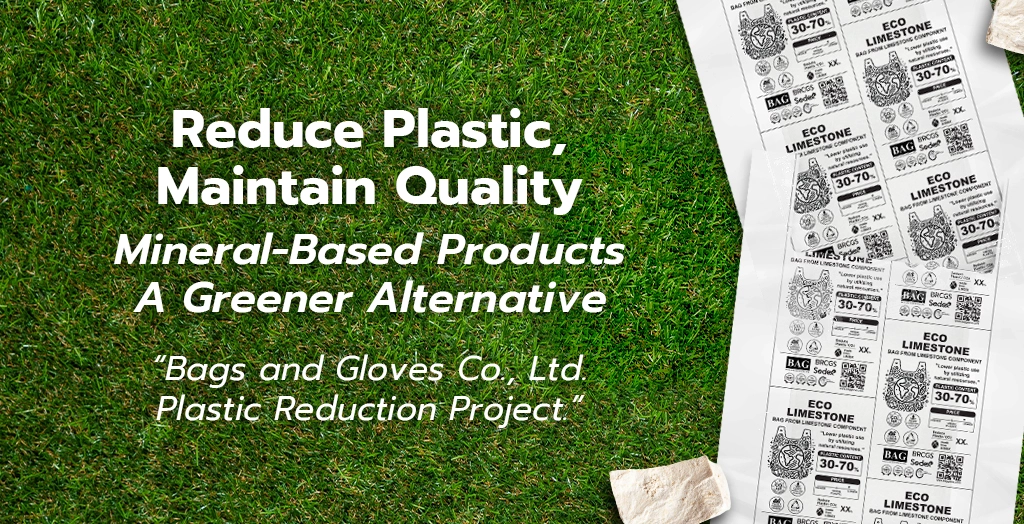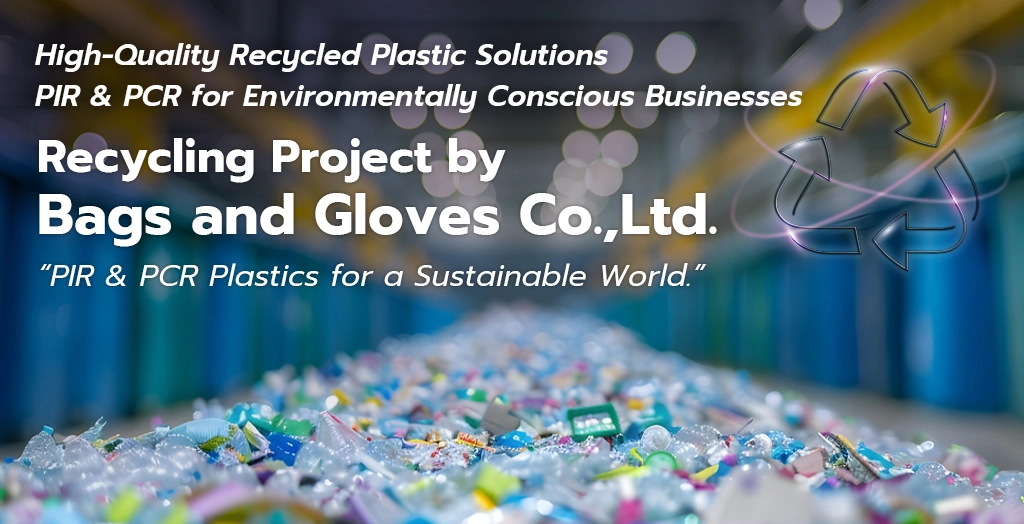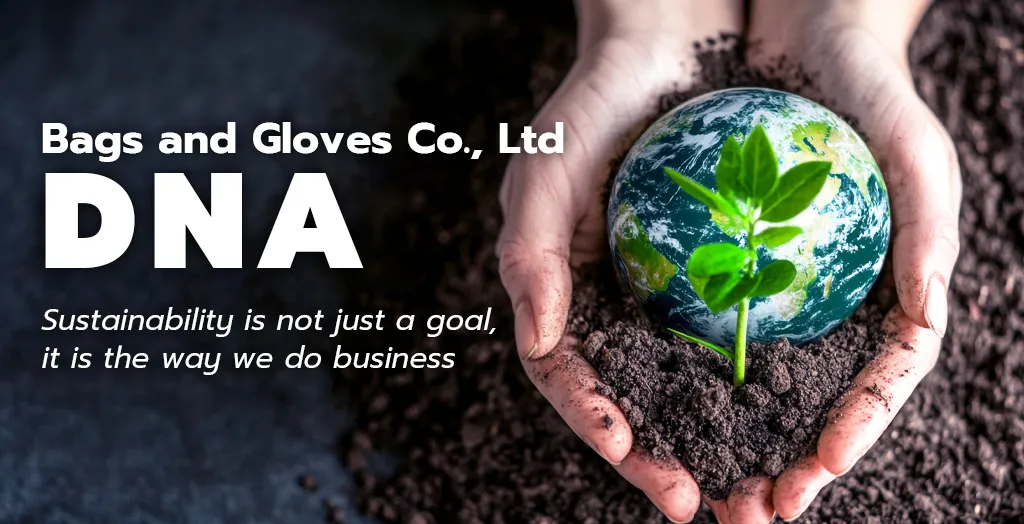Properties, Advantages, and Applications of This Biodegradable Plastic
As sustainability becomes an increasingly urgent global concern, both consumers and industries are actively seeking eco-friendly alternatives.
One material gaining significant attention is PBAT — a type of biodegradable plastic that offers both flexibility and environmental responsibility.
At Bags and Gloves Co., Ltd., we’re excited to introduce PBAT and explore what makes it such a promising material for the future — including its characteristics, benefits, limitations, and real-world applications across multiple industries.
What Is PBAT?
PBAT, or Polybutylene Adipate Terephthalate, is a biodegradable plastic designed as a sustainable alternative to traditional plastics that take centuries to decompose.
PBAT is synthesized from three main components — Adipic Acid, Terephthalic Acid, and Butanediol — giving it unique properties that allow it to break down naturally under the right environmental conditions.
When exposed to microorganisms, heat, and moisture, PBAT can decompose into harmless substances like water, carbon dioxide, and biomass — leaving no toxic residues behind.
Key Properties of PBAT
1. Biodegradability
PBAT is fully biodegradable under suitable conditions — such as environments rich in microorganisms, oxygen, and moisture.
In industrial composting facilities, PBAT typically decomposes within 3–6 months, while in natural environments, the process may take 1–2 years depending on temperature and humidity levels.
This makes PBAT a much faster and cleaner alternative compared to conventional plastics, which can persist for hundreds of years.
2. Flexibility and Strength
When compared to traditional plastics like Polyethylene (PE) or Polypropylene (PP), PBAT demonstrates flexibility similar to LDPE (Low-Density Polyethylene).
Although PBAT’s tensile strength is slightly lower, its excellent elasticity makes it ideal for thin film applications, such as plastic bags, food wrapping films, and packaging films, where stretchability is more important than rigidity.
3. Environmental Safety
PBAT’s biggest advantage is that it decomposes into non-toxic byproducts.
When broken down by natural microbes, PBAT leaves only water, CO₂, and biomass, posing no harm to soil, plants, or aquatic life — making it safe for both the environment and living organisms.
Applications of PBAT
1. Biodegradable Packaging
PBAT is commonly used to produce eco-friendly packaging materials, including:
- Shopping bags and supermarket plastic bags
- Food wrapping films
- Takeaway and food container packaging
These products help brands reduce environmental impact while maintaining product safety and convenience for consumers.
2. Agricultural Applications
In agriculture, PBAT is used to make mulching films that can be plowed directly into the soil after harvest — eliminating the need for collection and disposal.
It’s also used in seedling bags or nursery pots that can be planted directly into the ground, where the PBAT naturally decomposes over time.
This innovation helps reduce plastic waste and labor costs, while promoting sustainable farming practices.
3. Other Eco-Friendly Products
PBAT is increasingly being adopted in:
- Compostable trash bags for organic waste
- Drinking straws and eco cups
- Disposable food utensils
As global awareness of plastic pollution grows, PBAT is becoming one of the most practical materials for replacing conventional single-use plastics.
Advantages of PBAT
- 100% Biodegradable:
Decomposes completely under the right composting conditions — leaving no long-term waste or microplastics. - Similar to Conventional Plastics:
Offers elasticity, softness, and toughness comparable to LDPE, making it easy to integrate into existing applications without changing user behavior. - Environmentally Friendly:
Reduces marine pollution, landfill waste, and greenhouse gas emissions associated with traditional plastic disposal.
Limitations of PBAT
- Higher Cost:
PBAT currently costs 2–3 times more than conventional PE or PP due to complex production processes and limited large-scale supply. - Requires Specific Conditions to Degrade:
PBAT needs sufficient heat, humidity, and microbial activity to decompose effectively.
In low-oxygen environments such as landfills, the breakdown process can be slow or incomplete without proper waste management systems. - Shorter Shelf Life:
PBAT is more sensitive to hydrolysis (moisture degradation) than traditional plastics, making it less suitable for long-term storage or high-humidity environments.
The Future of PBAT in the Plastic Industry
Global demand for PBAT is rapidly rising as both manufacturers and consumers strive to reduce plastic pollution.
Research continues to improve PBAT’s mechanical properties and cost efficiency — enabling it to compete more effectively with conventional plastics.
In the near future, PBAT is expected to play a key role in promoting circular economy practices and reducing the environmental footprint of packaging, agriculture, and consumer goods industries.
Summary
PBAT represents a major step toward sustainable plastic innovation.
It combines biodegradability, flexibility, and safety — making it a viable solution for many modern applications, particularly in:
- Food packaging
- Single-use consumer products
- Agricultural materials
By embracing PBAT, businesses can meet both performance needs and environmental commitments, helping create a cleaner, greener future.
Bags and Gloves Co., Ltd. — Your Trusted PBAT Manufacturer
At Bags and Gloves Co., Ltd., we specialize in manufacturing a wide range of products from high-quality materials including HDPE, LDPE, LLDPE, PBAT, and PLA.
With over 28 years of experience and advanced production technology, we offer customized solutions that meet the specific requirements of clients across both domestic and international markets.
Our Products Include:
- Disposable gloves
- Aprons
- Gowns
- Other protective wear and plastic film products
Each product is developed with a focus on quality, safety, and environmental responsibility — ensuring that your business can move toward sustainability without compromise.
Contact Us
Bags and Gloves Co., Ltd.
https://www.bagglove.com/
International Sales
(+66) 2-108-2390
(+66) 95-583-3696
sales@bagglove.com
Domestic Sales
(+66) 2-108-2390 ext. 104
LINE OA: @bagglove
sales.d@tna-thailand.com
